

Momentary Effects
The Scottsboro Trials had an effect on the public that lasted many years but also had an immediate impact on American society. The trials, damaged by racial prejudice and an unjust legal system, highlighted the abiding racism of the time. The culmination and ensuing legal battles intensified racial tensions and led to increased awareness of systemic injustice. The trials also were part of the impetus or forces that led to the formation of civil rights organizations, such as the NAACP, which played an important role in advocating for the rights of African Americans. In the short term, the Scottsboro Trials emphasized the urgent need for legal reforms and facilitated the development of the civil rights movement, laying the structure for the challenges and victories that would follow in the fight against racial inequality.
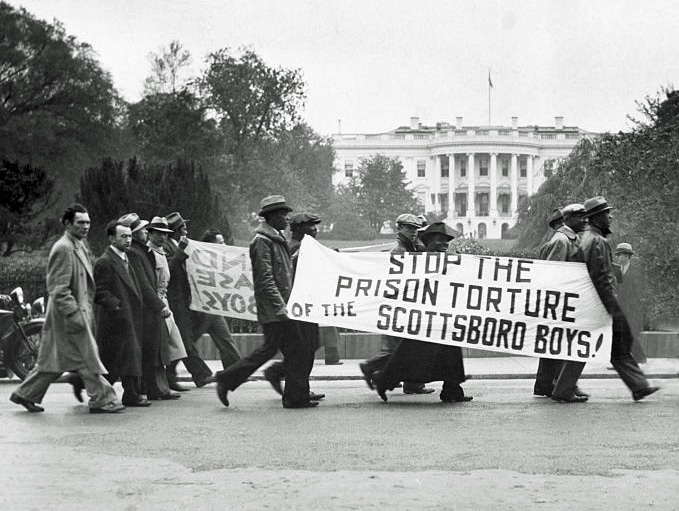
*Zinn Education Project*
"April-December: Shocked by the speedy trials, the extreme youth of the defendants, and the severity of the sentences, progressive national organizations take up the Scottsboro case and call for the country to reject the "Alabama frame-up." The National Association for the Advancement of Colored People (NAACP) and the International Labor Defense (I.L.D.) court the defendants, their parents, and public opinion for the right to represent the young men in an appeal, and raise money for their defense."
~American Experience works
“Why I am sitting down, thinking of no one but you, mama. They didn’t give me a fair trial. They are going to kill us for nothing."
~ Andy Wright
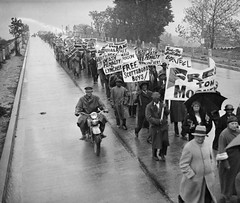
*Getty Images*
Riots sometimes broke out as people fought for the nine Scottsboro Boys.
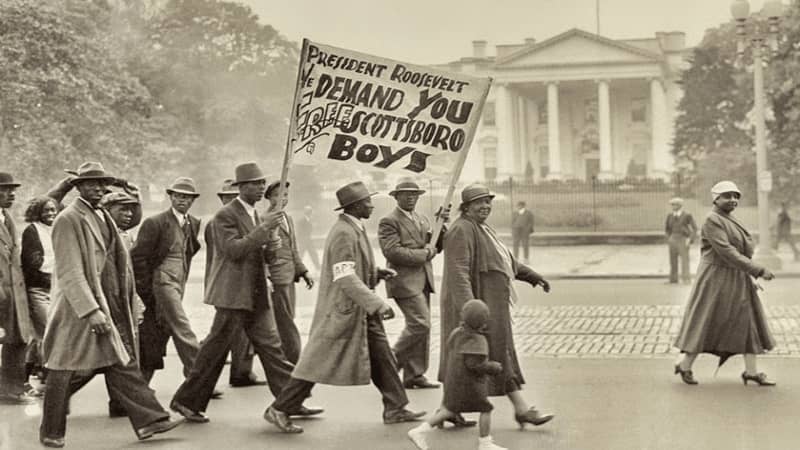
*Spring Magazine*
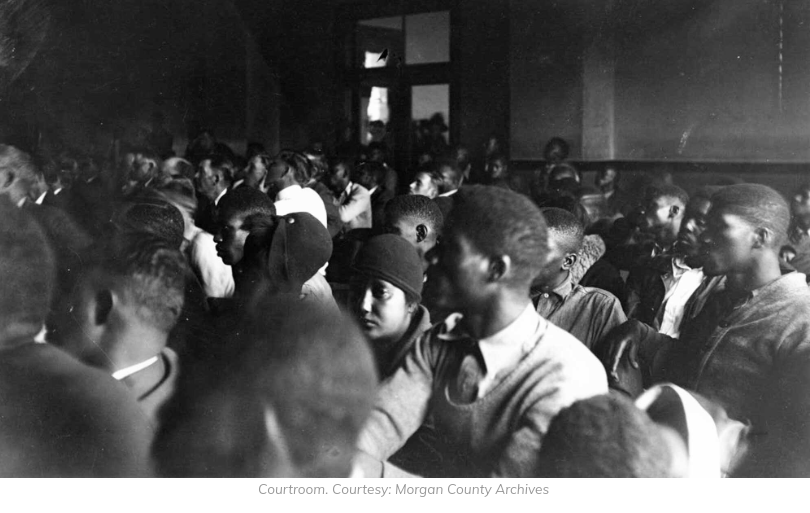
*PBS*
“Just stuck here in the same old cell at 4:30am…If there is a god as they say he knows I am not guilty of such a hideous crime.”
~ Roy Wright
"The judge granted Roy Wright, the youngest of the group, a mistrial because of age—despite the recommendation of the all-white jury. After this initial verdict, protests emerged in the north, leading to the U.S. Supreme Court overturning the convictions in 1932, in Powell v. State of Alabama"
~National Museum of African American History and Culture
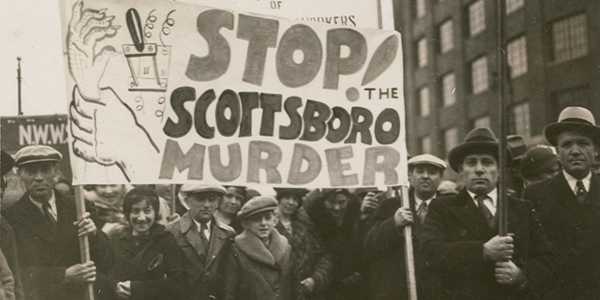
*The Librarians*